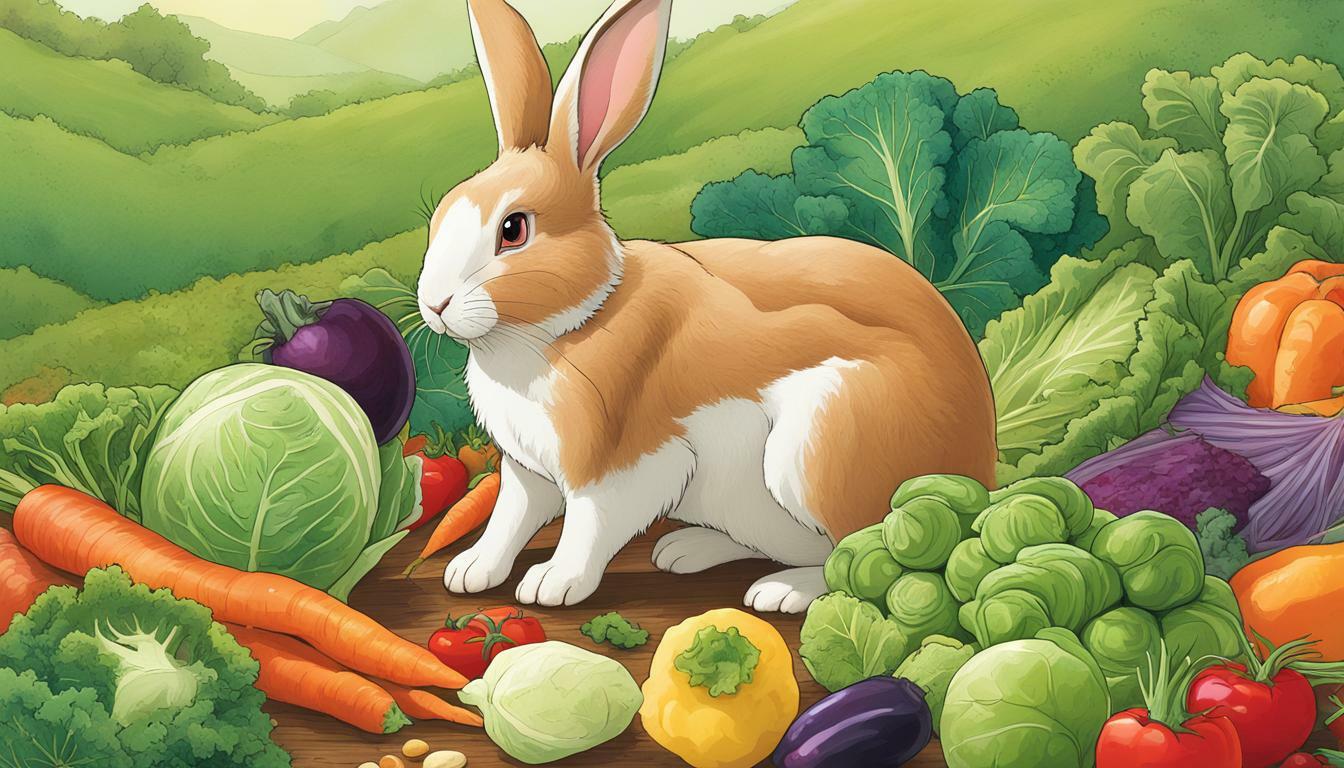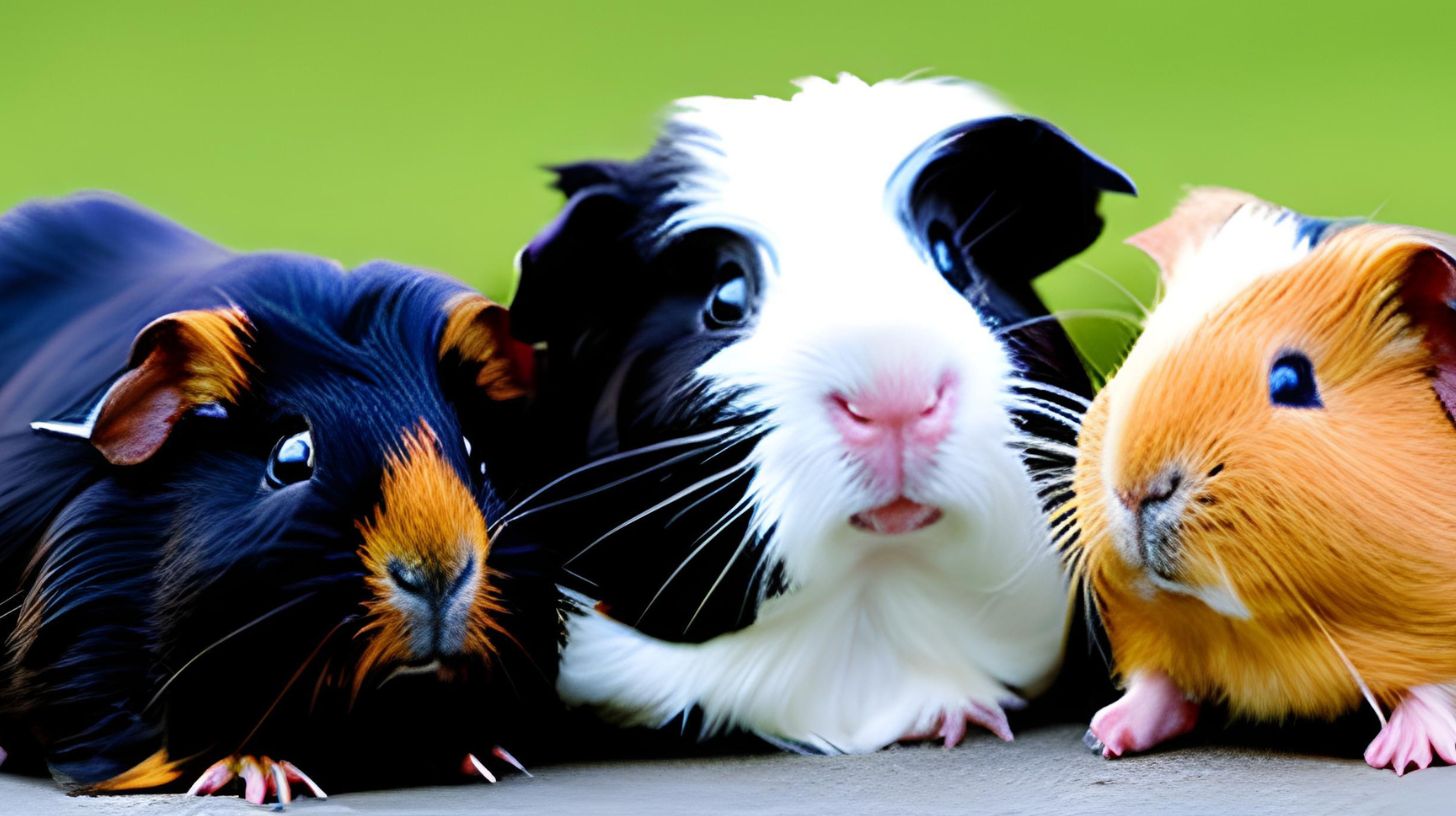Can Rabbits Eat Brussels Sprouts? Exploring Bunny Diets

Table of content:
- Brussels Sprouts for Rabbits
- Benefits of Brussels Sprouts for Rabbits
- Potential Downsides of Brussels Sprouts for Rabbits
- Feeding Guidelines for Brussels Sprouts
- Ways to Prepare Brussels Sprouts for Your Rabbit
- Signs of a Brussels Sprouts Allergy or Intolerance
- Can Baby Rabbits Eat Brussels Sprouts?
- The Verdict: Yes, in Moderation!
- Final Thoughts
Brussels sprouts are a healthy vegetable that many people enjoy. But what about our furry friends – can rabbits eat Brussels sprouts too? Let’s take a closer look at whether these miniature cabbages are safe and beneficial for bunnies to eat.
Brussels Sprouts for Rabbits
Brussels sprouts are a member of the cruciferous vegetable family along with broccoli, cabbage, kale, and cauliflower. They look like tiny heads of cabbage and have a mild, sweet flavor.
Brussels sprouts contain vitamins C and K along with antioxidants and fiber. This makes them a nutritious addition to human diets. But does the same hold true for rabbits?
The short answer is yes, rabbits can eat Brussels sprouts in moderation. The vegetable is not toxic to rabbits and provides some beneficial nutrients. However, there are also some potential downsides to be aware of.
Below we’ll explore the pros and cons of feeding Brussels sprouts to bunnies. We’ll also provide some tips on how much to feed, preparation methods, and signs to watch out for.
Benefits of Brussels Sprouts for Rabbits
Here are some of the main benefits Brussels sprouts can offer rabbits:
Good Source of Vitamins and Minerals
- Brussels sprouts contain vitamin C, vitamin K, potassium, folate and more. This makes them a nutritious choice.
Antioxidants
- Antioxidants help protect cells from damage and support the immune system. Brussels sprouts are high in kaempferol, a potent antioxidant.
Fiber
- The fiber in Brussels sprouts supports healthy digestion and gut motility. Fiber also helps prevent obesity.
Low Calorie
- Brussels sprouts are low in fat and calories. This makes them a healthy treatment option.
Promotes Dental Health
- Chewing Brussels sprouts can help grind down bunny teeth and keep them from overgrowing.
So in terms of nutritional value, Brussels sprouts do have some benefits to offer rabbits. Vitamin C, vitamin K, antioxidants, and fiber are all useful additions to a rabbit’s diet.
Potential Downsides of Brussels Sprouts for Rabbits
However, there are also some potential downsides to feeding Brussels sprouts to rabbits:
Gas and Digestive Upset
- Too many cruciferous vegetables at once can cause gassiness, bloating, and other digestive issues in some rabbits.
Goitrogens
- Brussels sprouts contain goitrogens, compounds that can impact thyroid function if consumed in very high amounts.
Pesticides
- Brussels sprouts are on the EWG’s “Dirty Dozen” list for high pesticide residues if not organic. Look for organic sprouts.
High Oxalate Content
- Oxalates can bind to calcium in the body. Moderation is key.
Risk of Loose Stools
- Too much in one serving may cause temporary diarrhea or soft stools. Start with small amounts.
So while Brussels sprouts can be fed to rabbits, it’s best to do so in moderation. Additionally, introduce them slowly and watch for any digestive upset.
Feeding Guidelines for Brussels Sprouts
When introducing Brussels sprouts to your rabbit’s diet, follow these guidelines:
Start Slowly
- Begin by offering just a few small leaves or thin slices.
Small Servings
- Limit servings to 1-2 teaspoons per 2 lbs of body weight.
1-2 Times Per Week
- Feed Brussels sprouts just 1-2 times per week to start.
Mix with Other Greens
- Combine Brussels sprouts with other leafy greens for better digestion.
Chop Well
- Always chop Brussels sprouts into small pieces to prevent choking.
Watch Stool Quality
- Monitor your rabbit’s stool and reduce amount of soft stool occurs.
Look for Organic
- Try to select organic Brussels sprouts when possible to reduce pesticide residues.
By starting slowly and sticking to the recommended serving sizes, Brussels sprouts can be a healthy occasional treat. Be sure to introduce new foods gradually and keep an eye on how your rabbit reacts.
Ways to Prepare Brussels Sprouts for Your Rabbit
Brussels sprouts can be fed to rabbits in a few different ways:
Raw
- The simplest method is to rinse, chop, and serve the raw sprouts. This preserves the most nutrients.
Lightly Steamed
- Steaming until just tender can enhance digestibility. Allow to cool before feeding.
Baked
- Baking at 350°F for 15-20 minutes can bring out the flavor. Let baked sprouts come to room temperature before serving.
Mixed Into Salads
- Incorporate chopped Brussels sprouts into a mixed salad with other rabbit-safe veggies.
As a Topping
- Grate raw Brussels sprouts over hay-based rabbit pellets or salads for added nutrition.
Any of these prep methods are fine as long as the Brussels sprouts are washed and chopped into bite-size pieces first. Avoid serving them fried or with any seasonings.
Signs of a Brussels Sprouts Allergy or Intolerance
Most rabbits can tolerate Brussels sprouts without issue. However, some may have an intolerance or allergy. Signs to watch out for include:
- Digestive upset such as soft stool or diarrhea
- Decreased appetite
- Reduced energy levels
- Signs of abdominal pain like teeth grinding or hunched posture
If any of these symptoms occur and persist after removing Brussels sprouts from the diet, consult your rabbit-savvy vet. They can provide personalized advice and help determine if an allergy is present.
Can Baby Rabbits Eat Brussels Sprouts?
Brussels sprouts are not recommended for baby rabbits under 12 weeks old. A baby’s digestive system is more delicate and may be unable to properly digest the vegetable.
It’s best to wait until at least 12 weeks of age before introducing Brussels sprouts. Stick to a diet of unlimited timothy hay, limited alfalfa hay, and high-quality rabbit pellets for growing bunnies.
The Verdict: Yes, in Moderation!
To summarize, rabbits can eat Brussels sprouts in moderation as an occasional treat. A few small servings per week provide vitamins, minerals, and antioxidants. Just be sure to introduce new veggies slowly. Monitor stool quality and watch for any signs of digestive upset or allergies.
When fed responsibly, Brussels sprouts can add beneficial nutrition variety to a rabbit’s diet. Just use the suggested guidelines on serving sizes and feed no more than 1-2 times per week. This leafy green is one salad ingredient that both you and your bunny can enjoy!
Final Thoughts
While Brussels sprouts are safe for rabbits, they should only be fed in limited amounts. Following the feeding guidelines provided can help you successfully introduce this nutritious veggie as an occasional treat. Variety is important, but always transition to new foods slowly. Monitor your rabbit’s health and stool quality closely when making any diet changes.
With some care and patience, your bunny can reap the benefits of vitamin-rich Brussels sprouts. Just be sure to stick to the recommended serving sizes and frequencies to prevent digestive upset.
Welcome. I’m Adreena Shanum, the proud owner of this website, and I am incredibly passionate about animals, especially poultry. I founded adreenapets.com as a labor of love, stemming from my desire to share my knowledge and experiences with poultry enthusiasts worldwide.




